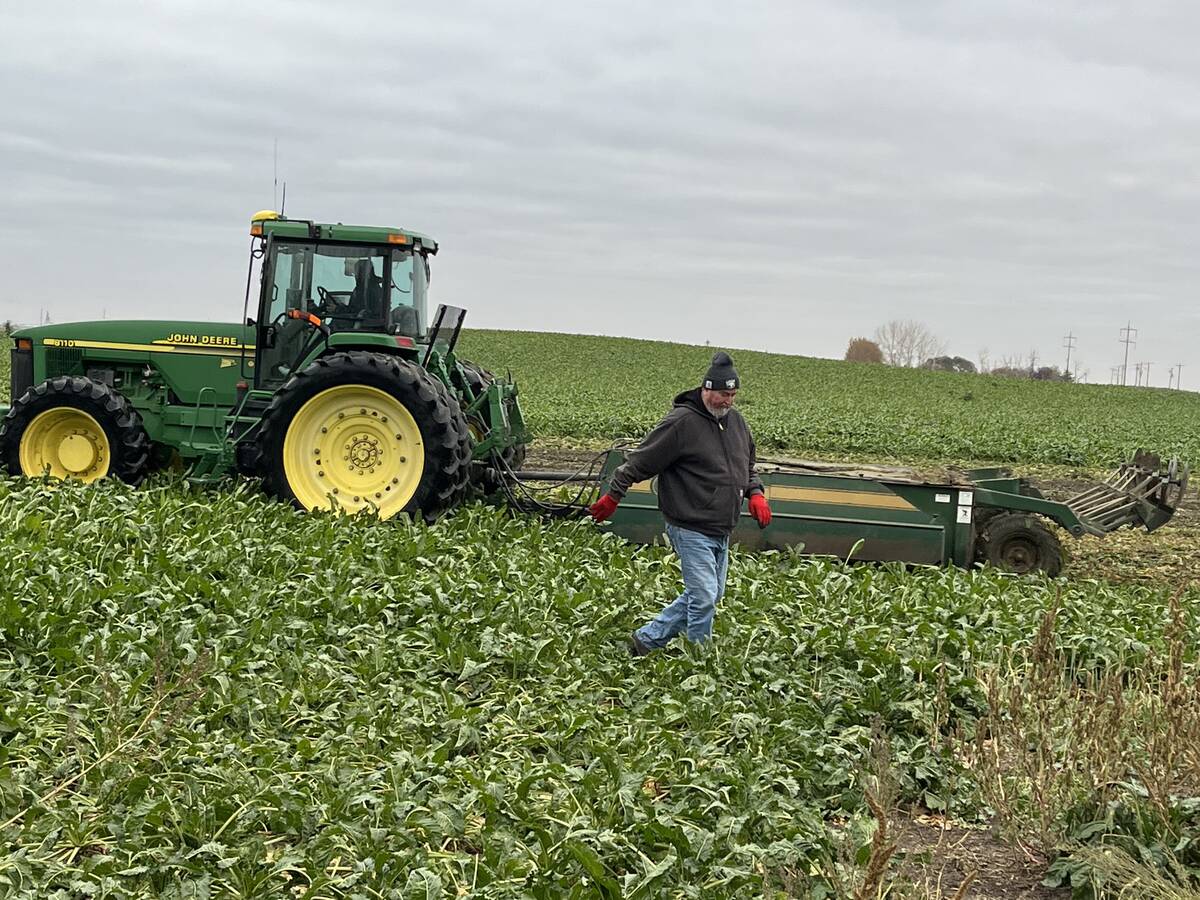Federal agriculture minister Andy Mitchell promises that when he designs or reviews policies, the impact on farmers will be at the centre of his work.
“I am committed to representing and dealing with the interests of farmers in this country,” the parliamentary veteran but rookie agriculture minister said.
It is helpful to have agri-business interests represented in the department, “but it is absolutely essential to remember that as minister of agriculture, your responsibility is to primary producers in this country and I intend to fulfill that.”
Read Also

Weight-loss drugs and health initiatives hammer a crop that usually provides an economic cushion
Americans are simply eating less sugar. Consumption started to decline in the 1990s as artificial sweeteners grew in popularity. Farmers this year planted their smallest sugar beet acreage since 1982.
Just hours before he flew to Geneva to take part in crucial World Trade Organization talks over a framework for future agricultural negotiations, Mitchell outlined how his farmer-centred view will affect his three main priority issues:
- He promised to launch a review of the business risk management component of the agricultural policy framework this fall and insisted that producers will have a voice in that review. Farmer representation has become a brittle subject in negotiations between farm groups and bureaucrats setting the terms of reference for the review.
Mitchell said he still must reflect on the exact nature of farmer involvement, but beyond the technical expertise “you also need the views and perspectives of producers, the people who use the system. To try to design something in isolation doesn’t make sense.”
- He promised to try to include the interests of both exporters and supply managed sectors in any WTO deal.
“It must work for all our farmers.”
- He said the government’s BSE focus must move beyond getting the border open for live cattle trade to creating “made-in-Canada” solutions that increase Canadian slaughter and processing capacity and producer power in the system. His promised “comprehensive” plan B could include more money for farmers, he added.
Mitchell, a former junior minister for rural development and most-recently minister of Indian affairs, was appointed Canada’s 30th agriculture minister July 20 when prime minister Paul Martin announced the cabinet that will lead the government in a minority Parliament that opens for business Oct. 4.
He replaces Bob Speller, who was defeated in the June 28 election. Mitchell, a former rural Ontario banker, represents the rural and cottage country riding of Parry Sound-Muskoka north of Toronto.
Prince Edward Island MP and former National Farmers Union president Wayne Easter was appointed Mitchell’s parliamentary secretary with special responsibilities for rural issues.
Mitchell, who witnessed the growing divide between farm organizations and Agriculture Canada during acrimonious negotiations over the APF, promised change.
“I won’t speak to the past but I will speak to the future and that is the importance of working with farmers, working with their representative organizations.”
Farmers may not always win their arguments but they should be heard and the decision explained, he added.
On cabinet appointment day, Martin predicted Mitchell and Easter will be “a very strong team” and he defended his choice of Mitchell, a non-farmer who is the third consecutive agriculture minister from Ontario.
“I take the issues of western agriculture very, very seriously and the whole question of BSE and the relationship with the United States is going to be a focus for the government,” Martin told reporters July 20.
“But at the same time, agriculture is very important in central and eastern Canada as well.”
Farm leaders and western agriculture ministers said they look forward to working with Mitchell as long as he pays attention to the West and consults farmers.














